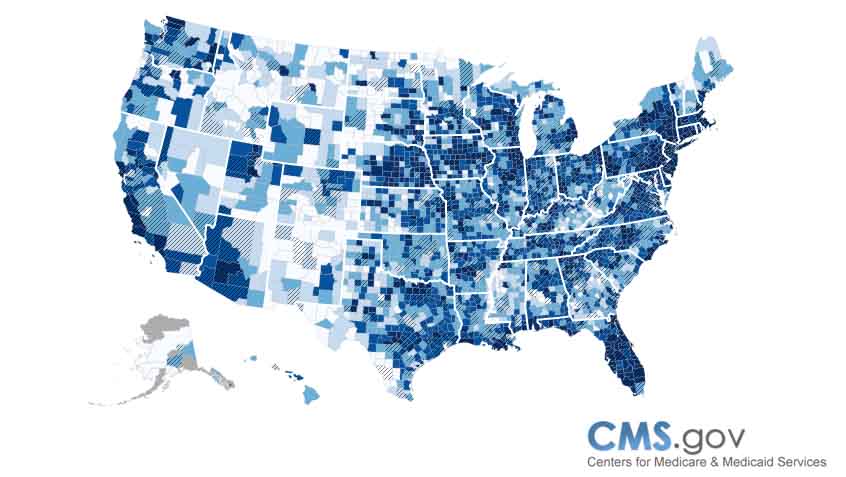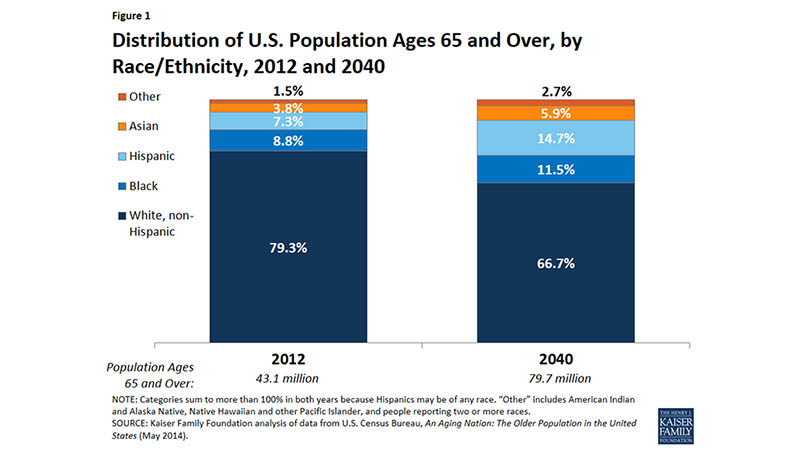Recently, the Centers for Medicare & Medicaid Services (CMS) Innovation Center proposed a demonstration to test new strategies to pay for medications that are covered under Part B. Most prescription medications are covered under Medicare Part D, but some (mostly those administered by a doctor) are paid for under the outpatient Part B benefit.
Common Part B prescription drugs treat cancer, macular degeneration, anemia, and arthritis. Part B medications tend to be very expensive—in 2013, Medicare and its beneficiaries spent $19 billion on Part B prescriptions.
Read More
Last week, the Department of Health and Human Services (HHS) announced that the expansion of the Diabetes Prevention Program, led by the Innovation Center, is improving the quality of patient care without limiting services and will reduce net spending in the Medicare program. “This program has been shown to reduce health care costs and help prevent diabetes, and is one that Medicare, employers, and private insurers can use to help 86 million Americans live healthier,” said HHS Secretary Sylvia M. Burwell. “The Affordable Care Act (ACA) gave Medicare the tools to support this groundbreaking effort and to expand this program more broadly.”
Read More
The Centers for Medicare & Medicaid Services (CMS) recently released an interactive map to help pinpoint disparities in health outcomes, utilization of health services, and health care spending by race and ethnicity based on geographic locations. Specifically, the tool shows disparities in chronic diseases among Medicare beneficiaries, spotlighting differences according to geography, age, sex, and race and ethnicity.
Read More
Last week, Medicare Rights wrote to the Medicare Payment Advisory Commission (MedPAC) responding to three proposals under consideration by MedPAC to alter the Part D prescription drug program. Established in 1997, MedPAC is an independent federal body made up of 17 members with diverse expertise in the financing and delivery of health care services. MedPAC regularly makes recommendations to Congress regarding the administration of the Medicare program.
Read More
Six years ago, the Affordable Care Act (ACA) was signed into law. Through new health insurance Marketplaces and the expansion of Medicaid, 20 million uninsured Americans have gained health coverage since 2010. Alongside these historic reductions in the number of uninsured, the ACA also made many important improvements to Medicare. On this sixth anniversary of the ACA, we reflect on three key ways the ACA strengthened Medicare.
Read More
Medicare Rights is pleased to announce a partnership with the COPD Foundation, whose mission is to prevent and cure Chronic Obstructive Pulmonary Disease (COPD) and to improve the lives of all people affected by COPD. They just shared a question sent to the Foundation’s popular “COPD Coach.”
Read More
The budget proposal approved this week by the U.S. House of Representatives Budget Committee is predicted to balance the federal budget in nine years, largely through across-the-board reductions in spending. One exception to these cuts is an increase of $90 billion dollars in defense spending. The proposed changes to the health care system are profound.
Read More
According to a new report by the Kaiser Family Foundation (KFF) highlighting the racial and ethnic backgrounds of people with Medicare, one-fifth of older Americans ages 65 and older are people of color, including 9 percent who identify as black, 7 percent as Hispanic, and 4 percent as Asian. Medicare plays a vital role in providing health coverage for the nation’s older and disabled populations.
Read More
As millions of Americans ready themselves to vote this election season, they need to know the various candidates’ positions on key Medicare issues. For this reason, the Medicare Rights Center is providing six questions to ask the 2016 presidential and congressional candidates to find out where they stand on protecting and strengthening Medicare.
Read More
The Department of Health and Human Services (HHS) recently announced that it reached an important benchmark to tie 30 percent of Medicare payments to the quality of care delivered instead of the quantity of services provided. According to HHS, as a result “…over 10 million Medicare patients are getting improved quality of care by having more time with their doctors and better coordinated care.”
Read More








